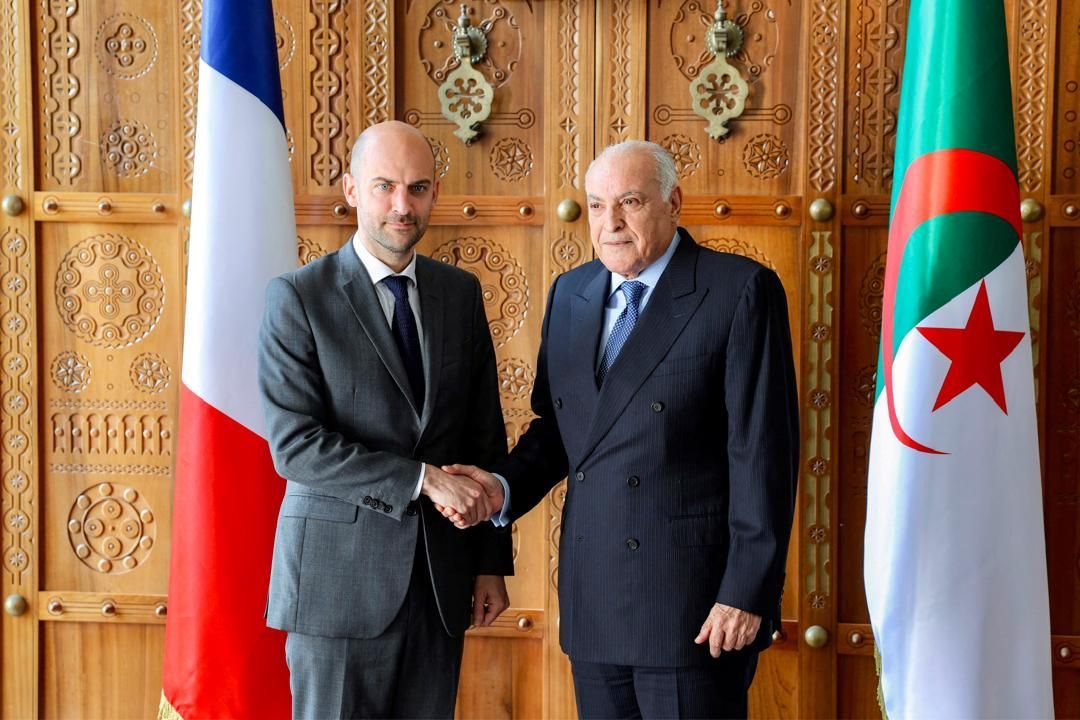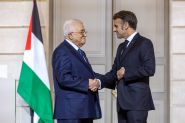- Home
- Middle East
- France-Algeria: Efforts at Reconciliation Undermined by the Amir DZ Case

©AFP Philemon Henry
Barely underway, the diplomatic reset between Paris and Algiers is already under serious strain. At the center of the tensions: the indictment in France of an Algerian consular agent over the alleged abduction of dissident Amir Boukhors, known as Amir DZ.
Algeria has condemned what it calls “a serious violation of international law” and, in response, expelled 12 French agents. It’s the latest flare-up in a relationship marked by shifting dynamics.
A Fragile Reset, Quickly Derailed
At the end of March, Emmanuel Macron called Abdelmadjid Tebboune on the occasion of Eid al-Fitr—a gesture aimed at easing the persistent tensions between the two capitals. A week later, on April 6, France’s top diplomat, Jean-Noël Barrot, traveled to Algiers, where he met with his counterpart, Ahmed Attaf, to revive key areas of bilateral cooperation: historical memory, economic ties, mobility, security and consular affairs. Even the joint historians’ commission, which had been dormant for months, was brought back on track. The Boualem Sansal case was raised. The tone appeared calm and constructive. But the diplomatic pause proved short-lived.
The Arrest That Shattered the Status Quo
On Friday, April 11, three Algerian nationals were charged in Paris with “kidnapping and sequestration in connection with a terrorist organization.” One of them is a consular agent stationed at the Algerian consulate in Créteil. The incident, which dates back to 2024, involves the exiled Algerian influencer Amir Boukhors, also known as Amir DZ.
The French National Anti-Terrorism Prosecutor’s Office (PNAT) accuses the three men of attempting to abduct Boukhors, whom Paris considers a member of the opposition. This is a serious charge with immediate repercussions.
Algiers’ Response: Expulsions and Crisis Communiqué
On April 13, Algiers summoned the French ambassador. The Ministry of Foreign Affairs issued a particularly harsh statement, condemning what it called an “unprecedented” breach of diplomatic norms, an arrest “in broad daylight” without prior notification, and a “violation of consular immunities.”
But above all, Algiers disputes the very nature of the case: for the Algerian authorities, Amir DZ is not an opposition figure, but “a thug, a troublemaker, a subversive activist linked to terrorist organizations.” He is accused of “defamation,” “public humiliation” and “disclosing private videos,” according to the same statement. This divergence in perception lies at the heart of the misunderstanding.
Algeria demanded the immediate release of its agent and announced, on Monday, April 14, the expulsion of 12 French agents, who must leave the country within 48 hours.
Paris Warns of Immediate Retaliation
In a written statement sent to journalists, French Minister of Foreign Affairs Jean-Noël Barrot called on Algiers to reverse its decision, “I urge the Algerian authorities to withdraw these expulsion measures, which have no connection to the ongoing legal process,” he stated. He also warned, “If the decision to expel our agents is upheld, we will have no choice but to respond immediately.”
Two Diverging Views of Amir DZ
The heart of this crisis lies in the deeply divisive figure of Amir DZ. In Paris, he is seen as a political exile, protected by freedom of expression. In Algiers, he is under arrest warrant, classified as a terrorist and accused of serious violations of privacy and national security.
On Friday, the state-run channel France 2 even aired a lengthy report on him, a media spotlight viewed as an additional provocation by Algiers.
Another Missed Opportunity
This latest episode highlights the fragility of efforts to reconcile France and Algeria. Since independence in 1962, the two countries have alternated between symbolic gestures and deep-rooted tensions. The Amir DZ affair is another chapter in this long history of strained relations, where each step forward is often undone by an unexpected incident, typically interpreted as one side humiliating the other. The previously announced meeting between Macron and Tebboune, still unscheduled, now appears uncertain. Likewise, the planned visit by Gérald Darmanin to Algiers is now in jeopardy.
Read more



Comments